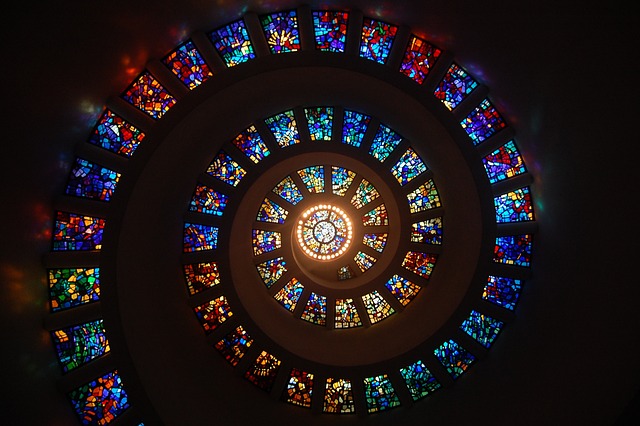“Born again” is not a religion, but rather a term commonly used within Christianity to describe a spiritual experience or conversion. It refers to a personal transformation or rebirth in which an individual accepts Jesus Christ as their Lord and Savior, and commits to living a new life guided by Christian principles and beliefs. While “born again” is not a religion itself, it is closely associated with certain Christian denominations and movements that emphasize this concept as a central aspect of their faith.
Table of Contents
The Origins and Beliefs of the Born Again Movement
Is “born again” a religion? This is a question that often comes up when discussing the beliefs and practices of the born again movement. To answer this question, it is important to understand the origins and beliefs of this movement.
The term “born again” comes from a passage in the Bible, specifically from the Gospel of John. In this passage, Jesus tells a religious leader named Nicodemus that in order to enter the kingdom of God, one must be “born again.” This concept of being born again refers to a spiritual rebirth, a transformation of the heart and soul.
The born again movement emerged in the 1960s and 1970s as a response to what some saw as a decline in traditional religious practices. It was a movement that emphasized a personal relationship with Jesus Christ and a commitment to following his teachings. Many people who identify as born again believe that this spiritual rebirth is necessary for salvation and eternal life.
One of the key beliefs of the born again movement is the idea of repentance. Repentance involves acknowledging one’s sins and turning away from them, seeking forgiveness and a new way of life. This belief in the need for repentance is central to the born again experience, as it is seen as a necessary step towards spiritual transformation.
Another important belief of the born again movement is the authority of the Bible. Born again Christians view the Bible as the inspired word of God and the ultimate source of truth and guidance. They believe that the Bible contains all the answers to life’s questions and that it should be studied and followed closely.
The born again movement also places a strong emphasis on evangelism and spreading the message of Jesus Christ. Many born again Christians feel a deep sense of mission to share their faith with others and to bring them to a personal relationship with Jesus. This often involves sharing personal testimonies of how they came to be born again and the impact it has had on their lives.
While the born again movement shares many beliefs and practices with traditional Christianity, it is not considered a separate religion. Rather, it is a movement within Christianity that emphasizes certain aspects of the faith. Born again Christians can be found in various denominations and churches, and their beliefs and practices may vary to some extent.
In conclusion, the born again movement is not a separate religion but rather a movement within Christianity. It emphasizes a personal relationship with Jesus Christ, repentance, the authority of the Bible, and evangelism. While it shares many beliefs and practices with traditional Christianity, it also has its own distinct emphasis on spiritual rebirth and transformation. So, the next time someone asks if “born again” is a religion, you can confidently say that it is a movement within Christianity that focuses on a personal relationship with Jesus and a commitment to following his teachings.
Exploring the Relationship Between Born Again and Christianity

Is “born again” a religion? This is a question that often comes up when discussing the concept of being “born again” in Christianity. To answer this question, we need to explore the relationship between being “born again” and the broader Christian faith.
Firstly, it’s important to understand what it means to be “born again” in Christianity. The term “born again” comes from a conversation between Jesus and a religious leader named Nicodemus, as recorded in the Bible. Jesus tells Nicodemus that in order to enter the kingdom of God, one must be “born again” of the Spirit. This spiritual rebirth is seen as a transformative experience, where a person’s old self is replaced by a new self in Christ.
So, is being “born again” a religion in itself? The answer is no. Being “born again” is not a separate religion, but rather a fundamental aspect of the Christian faith. It is a personal and spiritual experience that is central to the beliefs of many Christians. It is not about following a set of rituals or adhering to a specific doctrine, but rather about having a personal relationship with Jesus Christ.
Being “born again” is often associated with evangelical Christianity, where the emphasis is placed on personal conversion and spreading the message of salvation. However, being “born again” is not limited to any particular denomination or branch of Christianity. It is a concept that is found across various Christian traditions and is considered a core belief by many Christians worldwide.
The idea of being “born again” is rooted in the teachings of Jesus and the early Christian church. It is seen as a spiritual rebirth that brings about a radical transformation in a person’s life. This transformation is believed to be brought about by the Holy Spirit, who works in the hearts of believers to bring them into a new relationship with God.
Being “born again” is not just a one-time event, but an ongoing process of growth and transformation. It is about continually surrendering one’s life to God and allowing Him to work in and through them. This process involves repentance, faith, and a desire to live according to God’s will.
While being “born again” is not a religion in itself, it does have implications for how one lives out their faith. Those who have experienced this spiritual rebirth often seek to live in a way that is pleasing to God and aligned with His teachings. They may become more involved in their local church, engage in acts of service and charity, and strive to share their faith with others.
In conclusion, being “born again” is not a religion, but rather a central aspect of the Christian faith. It is a personal and transformative experience that is rooted in the teachings of Jesus and the early Christian church. While it is often associated with evangelical Christianity, being “born again” is not limited to any particular denomination or branch of Christianity. It is a belief that is held by many Christians worldwide and shapes how they live out their faith. So, if you ever come across the question of whether being “born again” is a religion, you can confidently say that it is not, but rather a vital part of the Christian faith.
Misconceptions and Stereotypes Surrounding the Born Again Faith
Is “born again” a religion? This is a question that often comes up when discussing the born again faith. Many people have misconceptions and stereotypes surrounding this term, and it’s important to address them in order to gain a better understanding of what being born again truly means.
First and foremost, it’s essential to clarify that being born again is not a religion in and of itself. Rather, it is a term used by Christians to describe a personal experience of spiritual transformation. The phrase “born again” comes from a conversation between Jesus and a religious leader named Nicodemus, as recorded in the Bible. Jesus tells Nicodemus that in order to enter the kingdom of God, one must be born again, not just physically, but spiritually.
This spiritual rebirth is seen as a profound and life-changing event for believers. It is often described as a moment of surrendering one’s life to Jesus Christ and accepting him as Lord and Savior. This decision is accompanied by a deep sense of repentance for past sins and a desire to live a life that is pleasing to God.
However, it’s important to note that being born again does not mean abandoning one’s previous religious affiliation or traditions. Many born again Christians continue to identify with their denominations or religious backgrounds while embracing this new spiritual reality. In fact, being born again can be seen as a personal relationship with God that transcends religious labels and practices.
Unfortunately, the term “born again” has been subject to misconceptions and stereotypes over the years. Some people view born again Christians as overly zealous or judgmental, based on the actions of a few individuals who may have misrepresented the faith. However, it’s important to remember that every belief system has its extremists, and they do not represent the entire born again community.
In reality, being born again is about experiencing a personal transformation and living out one’s faith in a way that reflects the teachings of Jesus Christ. It is about seeking a deeper relationship with God and allowing his love and grace to shape one’s life. This often leads to a desire to share the good news of Jesus with others, but it should never be done in a judgmental or forceful manner.
Another misconception surrounding the born again faith is that it is exclusive or closed-minded. Some people believe that being born again means rejecting other religions or viewpoints. However, this is not the case. While born again Christians believe that Jesus is the only way to salvation, they also recognize the importance of respecting others’ beliefs and engaging in meaningful dialogue.
In conclusion, being born again is not a religion, but rather a personal experience of spiritual transformation for Christians. It is about surrendering one’s life to Jesus Christ and embracing a new way of living that is centered on God’s love and grace. It is important to dispel misconceptions and stereotypes surrounding this term in order to foster understanding and respect among different faith communities. So, the next time someone asks if “born again” is a religion, you can confidently explain that it is not, but rather a deeply personal and transformative experience within the Christian faith.
Personal Testimonies: Stories of Transformation and Renewal in the Born Again Community
Is “born again” a religion? This is a question that often comes up when discussing the concept of being “born again.” Many people mistakenly believe that being “born again” is a religion in and of itself. However, this is not the case. Being “born again” is actually a personal experience that can happen within various religious traditions.
Personal testimonies from individuals who have experienced this transformation and renewal within the “born again” community can shed light on what it truly means to be “born again.” These stories of personal transformation are powerful and inspiring, and they demonstrate the profound impact that being “born again” can have on a person’s life.
One such testimony comes from Sarah, a woman who grew up in a Christian household but never truly understood what it meant to be “born again.” It wasn’t until she attended a “born again” retreat that she had a personal encounter with God that changed her life forever. Sarah describes this experience as a moment of surrender, where she let go of her own desires and allowed God to take control of her life. From that moment on, Sarah felt a deep sense of peace and purpose that she had never experienced before.
Another testimony comes from John, a man who had a troubled past filled with addiction and broken relationships. He had hit rock bottom and felt hopeless until he encountered the “born again” community. Through their support and guidance, John was able to find healing and forgiveness. He describes the experience of being “born again” as a second chance at life, a chance to start over and make things right. John’s story is a powerful reminder that being “born again” is not about joining a new religion, but rather about finding redemption and renewal within one’s own faith.
These personal testimonies highlight the transformative power of being “born again.” They demonstrate that being “born again” is not about following a set of rules or rituals, but rather about experiencing a personal relationship with God that brings about a radical change in one’s life. It is a journey of faith and surrender, where individuals allow God to work in their lives and transform them from the inside out.
Being “born again” is not limited to any specific religious tradition. It is a universal experience that can happen within Christianity, Islam, Judaism, and many other faiths. The common thread among all these traditions is the belief in a higher power and the desire to have a personal relationship with that power.
In conclusion, being “born again” is not a religion in itself, but rather a personal experience of transformation and renewal within various religious traditions. Personal testimonies from individuals within the “born again” community demonstrate the profound impact that this experience can have on a person’s life. Whether it is finding peace and purpose or overcoming addiction and brokenness, being “born again” is a journey of faith and surrender that leads to a deeper connection with God. So, is “born again” a religion? No, it is not. It is a personal encounter with the divine that transcends religious boundaries and brings about a radical change in one’s life.
Conclusion
No, “born again” is not a religion.
For licensing reasons, we must provide the following notice: This content was created in part with the help of an AI.


